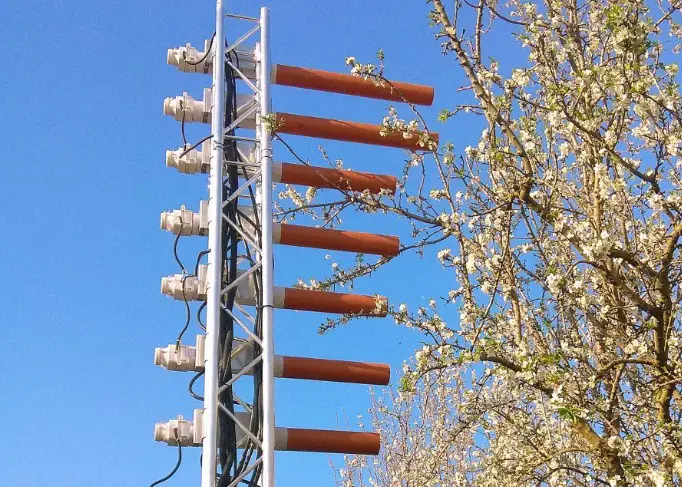
The machine pollinator is currently being developed overseas and could be used in America soon. Photo: Edete
A staggering 38% of beekeepers’ colonies died between October 1, 2018 and April 1, 2019, according to estimates from the Bee Informed Partnership, a U.S. government supported non-profit.
It wasn’t the worst recent year overall for honeybee losses (2012-2013 takes that dishonor), but it did constitute the worst winter die-off recorded by the University of Maryland based organization’s 13 years of conducting surveys on bee populations.
With wild bees dying off at alarming rates, beekeepers are highly sought after for pollinating all types of crops.
But what if there were a way to pollinate crops without bees that could be done in the event of further population collapse?
That’s what one company out of Israel is attempting to find out with the creation and testing of a new type of machine that they believe could complete one of the toughest and most important jobs in all of nature.
Artificial Pollination Machines to Replace Bees Being Developed Overseas
The new machines are being developed by an Israeli startup company called Edete, which its CEO Eylam Ran says can help out the struggling bee population.
“When someone is growing and hundreds of acres of almonds in the same area, this is a complete disaster for bees,” Ran said according to an article from the website FastCompany.com.
It sounds like something out of a science fiction movie, but the machine really is being developed and tested in Israel and Australia, and could be used to replace bee pollination soon in the U.S.
The hulking machines work by beaming lasers through a column of tiny cannons into the front of a tree, mapping out its shape in order to fire pollen at the almond blossoms.
The technology “is a glimpse at what agriculture could look like in a (dystopian) world without bees,” the FastCompany article said.
With almond milk sales growing by 61% over the past five years, Ran believes that more support is needed.
“Nature didn’t make the trees to take care of such a huge need,” he said.
The machine is capable of shaking trees in order to harvest flowers, storing pollen for more than a year so it can be used at the right time to match the bloom cycle of other trees. Ran compared it to an automatic car wash.
So far it’s been tested on almonds, but apples and peaches are expected to be next in line. The company is aiming to bring them on a large scale to California by 2022, the FastCompany article said.
“We need to take whatever we’ve done in small areas in several acres, and to increase it to make sure that it’s working with several hundred and thousands of acres,” he says.
“Jumping the scale is not trivial. We need to be careful that all the fundamentals that we’ve learned don’t change by changing the size of the machines and the production.”
Thanks for installing the Bottom of every post plugin by Corey Salzano. Contact me if you need custom WordPress plugins or website design.




